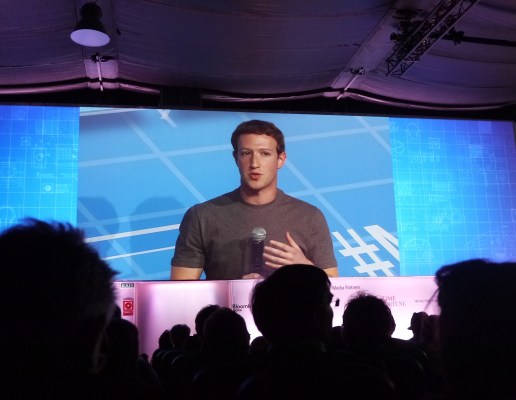More than a few people were surprised when Facebook said it would pay $19 billion for messaging app startup WhatsApp, but today Facebook CEO Mark Zuckerberg said that he believed it was actually worth more.
“If we can do a good job with WhatsApp [and] grow it, it will be a huge business,” he said today during a keynote presentation at Mobile World Congress in Barcelona.
He also shed a bit of light on why WhatsApp, led by co-founder Jan Koum, became interested in a Facebook exit — by all accounts, a tie-up that Koum in 2012 claimed was not a route he would have wanted to take: it was because of Internet.org, the Facebook-led initiative to bring internet connectivity to developing economies.
“Why were we excited to do this together? It was the Internet.org vision and how we can connect the world,” Zuckerberg said. While Koum and WhatsApp also seemed to have had the same philanthropic motivation behind their world communications domination ambition, it would have not been possible for them to execute on it as easily as they will with Facebook.
“If they did this as an independent company they would have had to focus on how to build the company out, to scale it, but now they can focus on how to connect the one to two billion people.” He emphasized that WhatsApp would remain completely independent but have access to all of Facebook’s resources to grow.
But one thing that may not grow anytime soon is Facebook’s portfolio of acquired messaging startups. Asked by someone in the audience whether he would try again for Snapchat — a company that Facebook apparently has tried to acquire more than once — Zuckerberg initially completely blanked the question. Then, when interviewer David Kirkpatrick brought it up a second time, he shed a bit more of an answer.
“Look, when you’ve just bought a company for $16 billion (not counting the RSUs), chances are you are probably done with your acquisitions for a while,” Zuckerberg said.
“With you, I don’t know,” Kirkpatrick answered.
Today Zuckerberg also laid out a bit more detail about how he sees the role of Internet.org.
The idea, he said, is to develop a group of basic internet services that would be free of charge to use — “a 911 for the internet.” These could be a social networking service like Facebook, a messaging service, maybe search and other things like weather.
Providing a bundle of these free of charge to users will work like a gateway drug of sorts — users who may be able to afford data services and phones these days just don’t see the point of why they would pay for those data services. This would give them some context for why they are important, and that will lead them to paying for more services like this — or so the hope goes.
“What they envision for carriers is that it will be up to them to decide what basic services might be free. Our model and what we’re trying to build is putting in an onramp is better for the internet and their models. It’s something that we can work out and have a lot of choice in,” he said.
Zuckerberg — who geeked out on specific references to how mobile networks can be built out and the financials behind Internet.org (there are three areas here, he said: the overall infrastructure, decreasing the amount of data that is being used, increasing application efficiently) — was straightforward in admitting that Internet.org won’t be a lucrative endeavor from the start. But he was also very optimistic.
“I cannot describe any model for the near term of how this would work for advertising model… I think we will lose money on this for a while,” he noted. “But we’ve been doing this for only a few months and people using data in Philippines [where Internet.org has partnered with Globe Telecom] has doubled since then… From what we’ve seen and rate of improvement we’re highly confident this will be profitable.”
On the efficiency of data services alone, he used the example of Facebook itself. A year ago people used 14 megabytes per day on Facebook, he said. Now, with improvements in compression on their mobile apps, that’s now down to 2 megabytes. The aim is to bring that down to 1 megabyte next year. (Onavo and its data compression technology also comes into play here.)
Zuckerberg was speaking to a room full of carriers and he knew it. For someone who expertly helped lead his own company through fundraising and a public offering, now he’s turning his attention to getting buy-in from a new class of investors: he’s looking for between three and five more telcos to deliver national initiatives in new markets.
